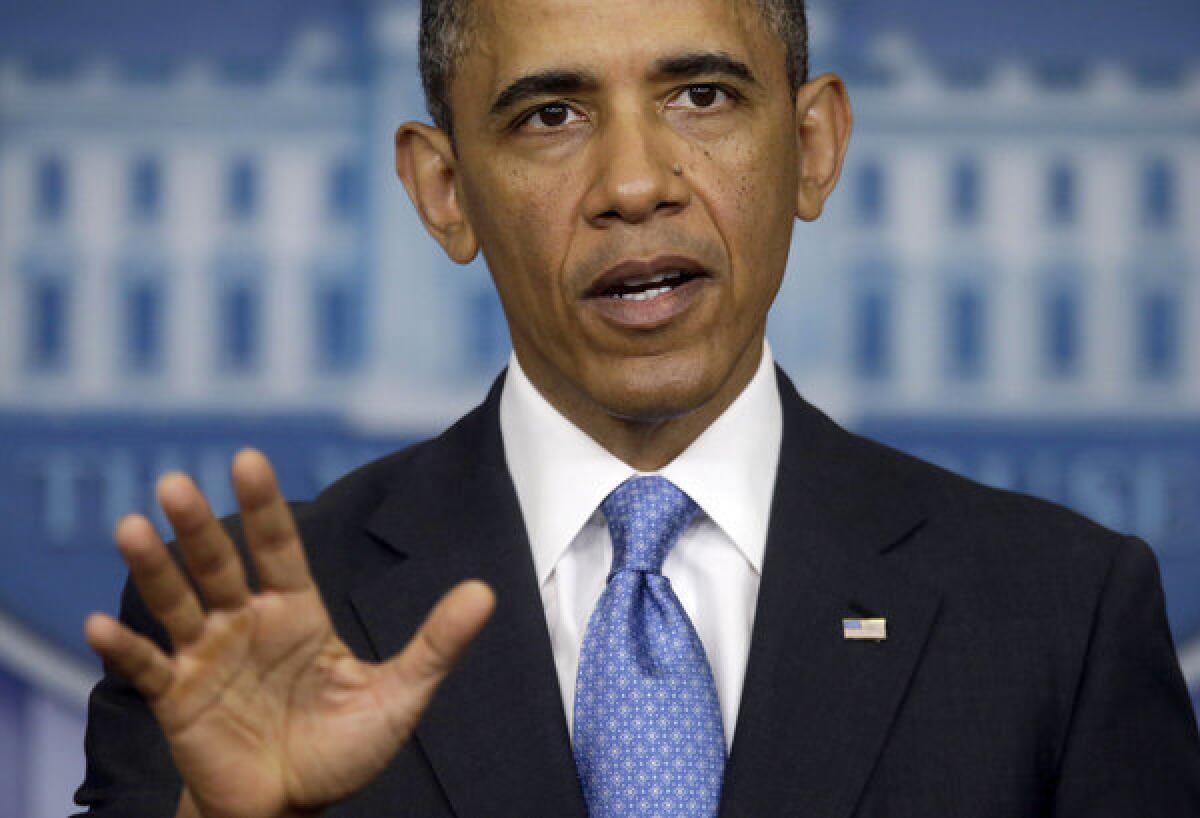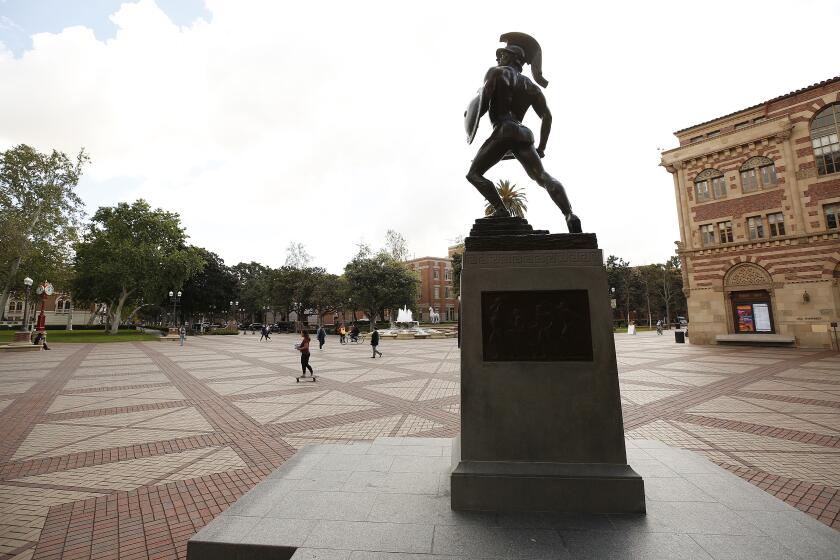Syria’s Assad crossed ‘red line.’ What’s Obama’s next move?

Rarely has a military escalation been so exquisitely gradual.
President Obama has been calling for Syria’s President Bashar Assad to surrender power for almost two years. Last year, he proclaimed a “red line,” a prohibition against the use of chemical weapons, and then watched as Assad crossed it. This spring, his administration watched as thousands of Iranian and Lebanese Hezbollah troops came to Assad’s aid and overran key rebel positions.
Inside the Obama administration, some -- including both Secretary of State John F. Kerry and his predecessor, Hillary Clinton -- advocated military aid to the opposition. In Congress, others, including Sen. John McCain (R-Ariz.), advocated more direct military action, including the imposition of a no-fly zone against Syria’s air force.
But on Thursday, when the White House announced that it had finally concluded that Syria had indeed crossed its red line and used sarin gas, the measures it announced in response were finely calibrated.
“The president has made a decision about providing increased support to the opposition … and that includes military support,” national security aide Ben Rhodes told reporters. But he refused to utter the word “weapons” or to provide any details of what the new aid will include, except to say that it will be “substantively different” and “responsive to the needs of the Syrian opposition.”
Rhodes added that Obama has definitively decided not to initiate any direct U.S. military action against Syria, including the imposition of a no-fly zone.
Why the reticence to announce more forceful steps?
There were hints that more specific measures may be announced soon, but Obama wanted to consult with leaders in Congress -- and, importantly, with the other leaders of the world’s big powers at a summit meeting next week -- before taking the next step.
One official suggested that the president hoped to use the prospect of increased aid as leverage to nudge Russia’s Vladimir Putin into bringing the Assad government toward ceasefire talks that Kerry has been trying to arrange in Geneva -- without much success, so far.
Rhodes noted that every proposal for increased aid had been subjected to the test of whether it would genuinely change the situation on the ground in Syria for the better; the no-fly zone was found wanting on that count, he said.
And Obama has been reluctant from the start to get more enmeshed in the Syrian quagmire, which promises no quick or easy end and conflicts with his larger aim of reducing U.S. military entanglements overseas.
But when the president announced in 2011 that Assad could not remain in power, he took a first step into the Syrian war with consequences he surely did not foresee. The escalation he agreed to this week was slow – too slow to McCain and other hawks. There will be critics on the other side, as well, who question why the United States has become enmeshed in Syria in the first place. But given Obama’s vocal support for the rebels, he faced an unpalatable choice.
And given the history of gradual escalations, he’s likely to face it again soon. Rhodes promised that if this week’s gingerly increase in aid did not succeed in changing the dynamic of the Syrian war, there would be yet more to come.
ALSO:
NSA leaker Edward Snowden: He’s no Daniel Ellsberg
As New York braces for climate change, L.A. does lunch.
More to Read
A cure for the common opinion
Get thought-provoking perspectives with our weekly newsletter.
You may occasionally receive promotional content from the Los Angeles Times.











